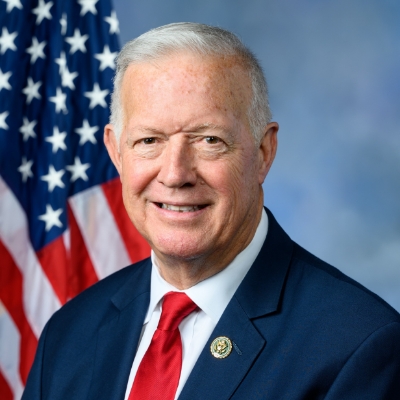WASHINGTON D.C. – On Monday, July 6, 2020, U.S. Rep. Randy Weber (R-TX-14) issued the following statement on adoption of H.R. 6388, the Space Technology Advancement Report (STAR) Act of 2020, into the National Defense Authorization Act (NDAA).
The STAR Act, initially introduced this past March by Weber and U.S. Rep. Chrissy Houlahan (D-PA-06), focuses on findings and recommendations provided by the U.S.-China Economic and Security Review Commission (USCC). In their 2019 Annual Report to Congress, the USCC highlights increasingly threatening behavior by the People’s Republic of China (PRC) in their campaign to dominate space through a variety of means.
“The PRC has expended an enormous amount of energy and resources to exert control over sensitive markets – such as germanium wafer mining, refining, and production – essential for space-based, solar-powered technology such as satellites. Further, we have witnessed the PRC’s widespread and expensive campaign of intellectual property theft, and it is not limited to American universities. This legislation asks the National Space Council to examine the scope and severity of this threat on U.S. launch and satellite markets.
“It is critical that we understand, analyze, and plan to counter any threats to America’s leadership position in space. As China moves forward on the construction and eventual in-space assembly of their ‘Chinese International Space Station,’ we must ensure America not only maintains, but strengthens, long-lasting relationships with our international partners, while protecting our domestic launch and satellite providers. Essential to this effort is coordination with other federal agencies to bolster U.S. capabilities and assets in space, militarily or otherwise.
“In addition to examining these concerns, the Space Council would be required to report on efforts currently undertaken by different federal agencies in their security reviews. This must occur prior to investing in private space entities that may have received funding from foreign investors.
“Further, the Space Council shall examine other potential threats to U.S. national security, vis-a-vis China’s efforts to seize control of American space industry companies or sister companies with shared leadership. The U.S. must come to grips with reality: China is committed to dominating the space from low-Earth orbit to the Moon and beyond.
“I thank Congresswoman Houlahan for her leadership and commitment to this important issue, and I congratulate her on the success of moving it forward as part of the NDAA. I also look forward to continuing this discussion and advancing this cause when the House Committee on Science, Space and Technology marks up H.R. 5666, the NASA Authorization Act of 2020.”
 U.S. REPRESENTATIVE
Randy Weber
Proudly Serving Texas' 14th District
U.S. REPRESENTATIVE
Randy Weber
Proudly Serving Texas' 14th District
